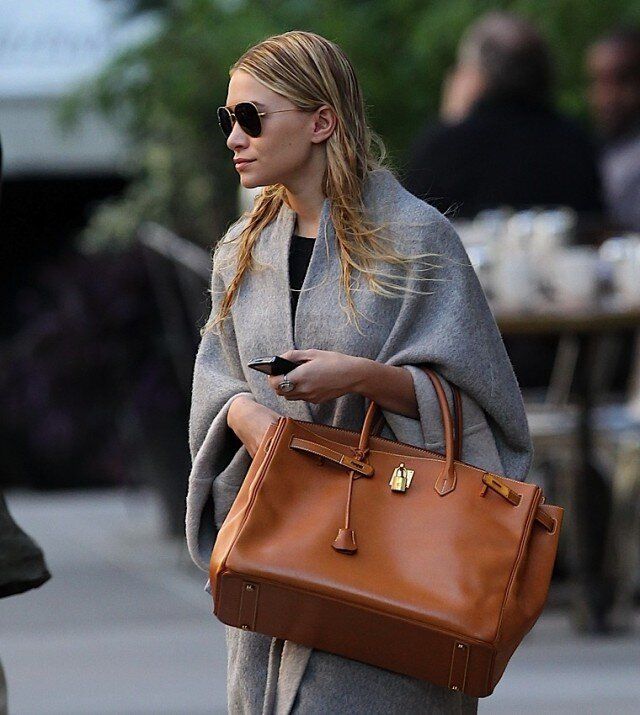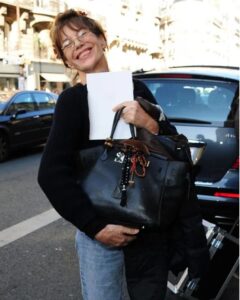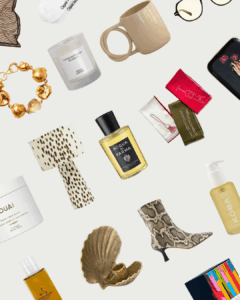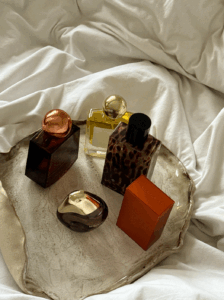It’s Not a Bag, It’s a Birkin: Is Hermès’ Culture of Exclusivity Fuelling Fast Fashion?
Alice Hartwell
Few brands define “playing hard to get” quite like Hermès. The call-up to be offered a Birkin, because, yes, you famously can’t just stroll into any Hermès store and demand one, has now become the most prestigious rite of passage in the world of luxury goods. As SATC’s Samantha Jones famously found out, “It’s not a bag, it’s a Birkin”, and with it comes a unique set of rules. To a certain degree, luxury brands have always operated on a culture of exclusivity, but Hermès takes it to an entirely new level. You always want what you can’t have right? But in fashion, there will always be a way to get it, in some form or another, and usually, that form comes at a cost to the planet.
Selectivity is nothing new in luxury fashion, and Hermès certainly aren’t the only brands doing it. In recent years, we’ve witnessed the price of Chanel bags increase by 16% since 2022 alone, with the signature Medium Chanel Classic Flap now 10 times more expensive than it was in the 90s. The Row are also guilty of pricing out much of the consumer market, where even a basic pair of jeans will set you back over £1k. So why do they do it? Well because the more you’re told you can’t have something, the more you work to get it. Owning pieces from these brands now feels like becoming part of an elite club that others could only covet, it plays on consumer ego, and it works like a charm.
In some ways, you can look at this kind of exclusivity as a positive move sustainably. Fewer sales mean fewer products which means the reduced use of natural resources and risk of pollution. It’s also worth noting that pieces from these prestigious brands have, and will always have a strong resale value. You’ll certainly never see an Hermès Kelly discarded to landfill. These items will always remain in constant circulation, which can only be a good thing. The Birkin creation process itself epitomises all we seek from slow fashion. Each one is made by a single artisan, hand-sewn and amounting up to 18 hours of work in total.
It’s worth noting, however, that the game that Hermès play with their customers to achieve the holy Birkin realm doesn’t exactly promote low consumption. As we well know, no one gets a Birkin by strolling into a store on a random Tuesday afternoon. No, first you must befriend a good sales associate, and start spending straight off the bat, likely on things you don’t want or need, but are more likely to bump you up the Birkin ladder. Once Hermès deems you have an extensive enough purchase history, you may then be invited in-store and offered a “quota” bag, like the Kelly or Birkin, which will be completely of Hermès’ choosing. You will have no say in the size, colour or finish, it’s either a yes or a no. You can always decline, but word on the street is that makes you likely to fall out of favour with the Hermès gods. Many people end up purchasing pieces they don’t really want, yes because the resale value of Birkins is incredible, but also to stay in the brand’s good books to one day be offered the bag of their dreams. It feels like a constant cycle of buying and selling, slightly dampening all the effort into responsible production.
@audreypeters Reply to @itsjosezarate would you accept or deny a bag you didnt request the color for👀 #hermes #hermeskelly #hermesbirkin #hermeshaul #hermessalesassociate ♬ Quirky - Oleg Kirilkov
Luxury influencer Audrey Peters chats through the mystifying Hermès wishlist system and the risk of blacklisting.
Another problem with exclusivity is that it can be a double-edged sword. While there will always be customers with plentiful bank accounts willing to drop tens of thousands on a bag, sometimes hundreds of thousands for rare Birkins, for the other 95% of the population, it’s laughably unthinkable. A gap then falls to service this 95% who want to join the club, but maybe at a lower, more attainable level, and this is where dupe culture arises.
Dupe culture too, is nothing new. It ranges from the legally-questionable “Gucci” bags sold at markets for £20 to the more subtle highstreet “inspired” pieces. Most infamously as of late, the K-Mart Birkin has gone viral, allowing those who can’t fork out $20,000 on the trend to pay $15 instead. Given the pricetag, while accessible, this bag is obviously made from cheap, irresponsible materials, which will be left to sit in a landfill after Birkins doesn’t feel so trendy and exclusive anymore because everyone cheapens it by having their own version.
@lifestyle.with_g The Viral 👜 from Walmart #fashion #fyp #walmartfinds #trending #iykyk ♬ Vogue - Noizu
It feels like dupe culture is on the rise more than ever, but maybe that is because exclusivity in fashion is more elitist than ever. Even well-off, middle-class people, who have historically felt at home shopping in the luxury market, will struggle to foot an Hermès or Chanel bill anymore, which means they too will need an alternative. This surely will promote a rise in fast fashion, which operates even at the more luxurious high street levels.
Don’t get me wrong, I don’t think moves like this will topple Hermès from their luxury pedestal anytime soon, as we have seen with the likes of Michael Kors, but I predict the shine of the Birkin to be dimming. As Hermès well know, no one wants something everyone has.






